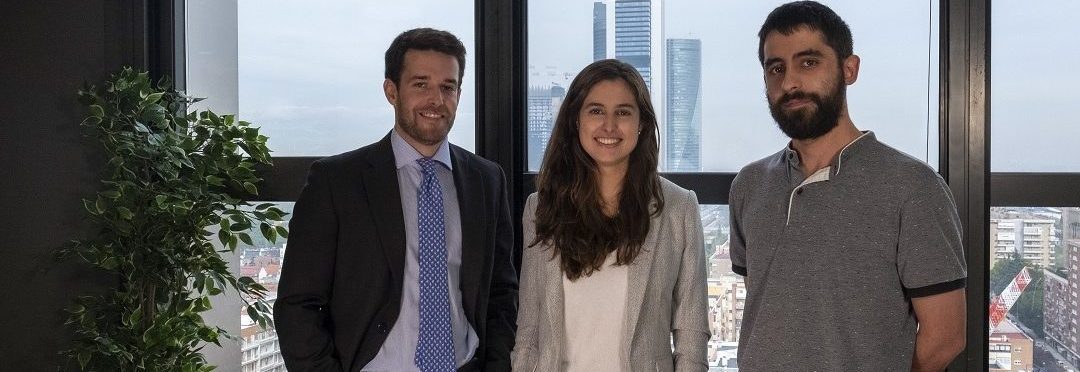25 November 2019
for Madrid Nuevo Norte

The idea to promote an urban regeneration project in northern Madrid to bridge the gap caused by the rail tracks was raised in 1993. María, Borja and Daniel were born that year. Today, the three young adults work at DCN, the company that 26 years ago embraced the challenge of promoting this project together with the public administrations. It gives them an exceptional opportunity to participate in the design of a city of the future, capable of addressing the challenges of their generation. We talked with them about how they see the world and their vision of Madrid as a sustainable, 21st-century city, designed for people, and that offers opportunities for all its inhabitants.
What characterises this generation most is their environmental awareness and concern about climate change. “We are the first generation that marks a turning point. We have the power to build a better world for everyone,” recalls Borja. “Much of our generation’s work should focus on raising awareness,” Daniel insists.
The three rightly saw that cities should play a fundamental role, and commitment to sustainable mobility is essential. “An improved public transport infrastructure would eliminate the need to commute to Madrid by car,” says Daniel. María underlined that urban design is another key factor to avoid polluting commutes. She advocates a compact city, in which everything is readily accessible and pedestrian-friendly.
When asked to imagine the neighbourhood they want to live in, the image that comes to their mind has more to do with a traditional one than the new urban sprawls. María defines it as “returning to neighbourhood life”. “A neighbourhood where you can see a super-high office building, but also leisure areas and small shops, you know, where the shopkeeper remembers your name,” Daniel explains. “And with many facilities, like schools and, above all, many green areas,” says Borja.
Along with the future of the planet, this generation of young people is united by other shared concerns. “My main concern is finding a stable, quality job that would allow me to access housing”. Daniel’s comments reflect the findings of the CIS (Centre for Sociological Research); young Spaniards are most concerned about unemployment and access to housing. All three share this perception. They also believe that Madrid should commit to a new, technology- and knowledge-based model to improve opportunities and compete with other European cities to attract companies and talent.
María, Borja and Daniel are convinced of the transformative power of a large-scale project like Madrid Nuevo Norte to address the challenges faced by their generation. They are aware that commitment to public transport, implementation of the latest advances in sustainability or the large CBD that is envisaged in this project are crucial to promoting a city capable of responding to their concerns.
They are acutely aware that changing things is not easy; however, they believe that they are in the best place to do so. “We are going to make sure that our project has a global impact,” explains María. “I think we’re on the right track,” says Dani. “We will see and feel Madrid Nuevo Norte; it’s going to change Madrid,” concludes Borja.